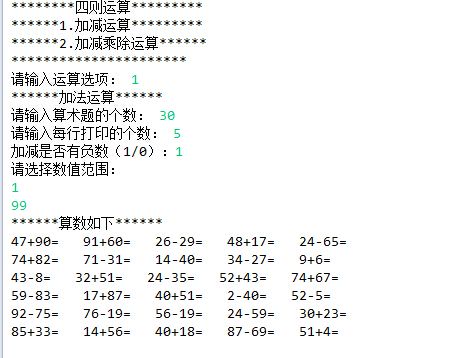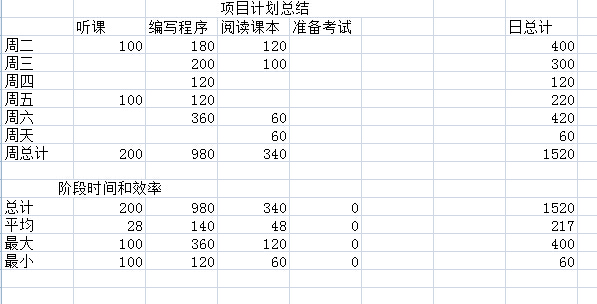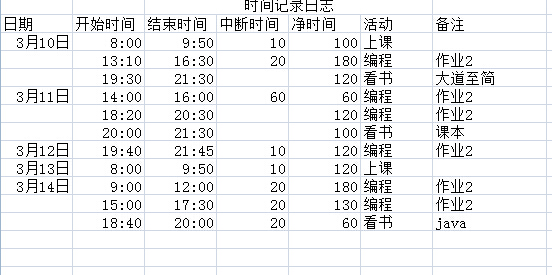- 人教版六年级数学上册教材分析
尚未秃头的老师
教学内容:修订后的六年制第十一册教科书的主要内容有:位置,分数乘法,分数除法,圆,百分数,统计,数学广角和数学实践活动等。分数乘法和除法,圆,百分数等是本册教材的重点教学内容。教材分析:在数与代数方面,教材安排了分数乘法、分数除法、百分数三个单元。分数乘法和除法的教学是在前面学习整数、小数有关计算的基础上,培养学生分数四则运算能力以及解决有关分数的实际问题的能力。会解决简单的有关百分数的实际问题,
- python eval函数的使用方法
丑的看不了
python编程语言1024程序员节
一、eval函数的使用方法eval()函数是许多编程语言都内置的一个函数,如JS、PHP、Python等,用于返回括号内包含的表达式执行后的结果python中的使用格式为eval(表达式[(可选{字典形式})全局变量,[(可选)局部变量]])在Python中的基本用法:输入一组描述四则运算的字符串"125+255"需要重点关注的问题:输入eval(“125+255”)是否报错能否返回结果值检查返回
- Java课程设计——简易计算器
代码前哨站
java课程设计开发语言eclipseide
1.系统简介1.1设计背景随着人们物质生活水平的日益提高,人们对高质量的计算提出了更高的要求。当今世界,是云计算的生活和物联网发展和使用阶段,计算性能的高低和计算的效率直接影响到了人们的生活。对此,使用Java语言开发出一个为人们生活带来便利的计算器,主要完成对数据的高效计算。该系统实现了加、减、乘、除的四则运算。1.2开发工具及环境(1)开发工具及介绍Eclipse是Java集成开发环境(IDE
- 高中数学(从函数极限到积分)
小杨洲
数学分析极限与导数1.数列和函数极限数列极限定义。设{xn}为一个数列,若∃a为常数,对于∀ε>0,总有∃N∈N*,使得当n>N时,不等式|xn-a|n}的极限(数列收敛于a)。数列极限记为limn→∞xn=a,若不存在常数a说明该数列无极限或发散,表示limn→∞xn不存在。收敛极限得性质有唯一性(极限值),有界性(收敛则有界),保号性(数列xn≤yn,则对应极限a≤b),四则运算(加减乘除),
- C++中绝对值的用法
MAMA6681
c++开发语言
在C++中,std::fabs函数可以用于四则运算中,特别是当你需要确保参与运算的浮点数是正值时。std::fabs函数返回其参数的绝对值,这对于处理可能包含负数的表达式很有用。下面是一些示例,展示了如何在四则运算中使用std::fabs函数:示例1:加法#include#includeintmain(){doublea=-10.5;doubleb=5.3;doubleresult=std::fa
- 何谓数学感
张松利
今天听台湾教授李源顺的讲座,听到了一个新名词:数学感。是数学感可不是数感呦,那什么是数学感?数学感顾名思义应该是对数学的感觉,学数学、用数学的感觉,更可理解为对数学的敏感性。以四则运算为例:整数加减法体现在形式上可看成末尾对齐,而小数加减法则是小数点对齐,同分母分数加减法是分子相加减,而追溯其本质都是计数单位的运算,拥有数学感的孩子,即便老师教的时候没有讲透,他也能本能地感受到这三种数运算之间的本
- 2020-11-28,怎样区分“探究与引导”
大雁南飞
怎样区分“探究与引导”昨天想到,在上乘法分配律的时候,直接给出下列三道题目,要求是看谁算的又对又快。14×7+14×3,9×7+3×9,23×17+83×23,一般来讲,孩子都会按照四则运算的顺序来运算。比如:14×7+14×3=98+42=140;同时期待着有孩子用14×7+14×3=14×(7+3)=14×10=140这种算法。(如果万一没有,教师就直接说,在我班上有孩子这样做。)请问,这样计
- 2024.3.7|华北水利水电大学江淮校区ACM社团训练赛
锅巴xx
训练赛c++笔记算法
2024.3.7|华北水利水电大学江淮校区ACM社团训练赛1.[NOIP2015]金币2.牛牛算数3.四则运算4.数学实验5.隐瞒成绩6.斐波那契心有猛虎,细嗅蔷薇。你好朋友,这里是锅巴的C\C++学习笔记,常言道,不积跬步无以至千里,希望有朝一日我们积累的滴水可以击穿顽石。[NOIP2015]金币题目:国王将金币作为工资,发放给忠诚的骑士。第一天,骑士收到一枚金币;之后两天(第二天和第三天),每
- Python——Python运算符——算数运算符
上课不要睡觉了
Python知识体系python数据库
Python——Python运算符——算数运算符运算符是用于表示不同运算类型的符号算数运算符可以完成数学中的加、减、乘、除四则运算。算数运算符包括+(加)、-(减)、*(乘)、/(除)、%(取余)、**(求幂)、//(整除)。其中,幂运算返回a的b次幂,例如,12**3计算的是12的3次方。由算数运算符将数值类型的变量连接起来就构成了算数表达式,它的计算结果是一个数值。不同类型的数据进行运算时,这
- 重生之我学C高级:shell作业
不断探索挑战
linux运维服务器
使用shell编译四则运算使用shell写9*9乘法表shell的select循环删除当前拥有的.c文件没删时运行后使用shell写金字塔*
- 基于c语言的小学生心算CAI系统
永远十八岁的彭于晏
c语言C语言课程设计
基于c语言的小学生心算CAI系统基本的功能描述本系统可以用来进行单独的的加、减、乘、除心算练习,也可综合心算的速度与正确率进行测试。当用户在进行简单的四则运算时运算速度和正确率都较高时,可以进入四则混合运算,借此来进一步提高自己的心算能力。系统需求分析本小学生心算CAI系统为的是锻炼小学生的心算能力,所以需要出的大部分为简单的单独加减乘除的计算和综合的加减乘除的有关训练,所以可以将这些功能全部封装
- 人生百相,不过熵增熵减
captain_hwz
miscellaneous熵
这篇博文由两个问题衍生而来,分别是:“为什么除法比加法困难”、“什么是生命进化的目的”。在阅读其他人的解读时,发现都关联到了一个概念,熵。觉得十分有意思,因此记录一下自己的遐想。熵(Entropy;Entropie)起初是一个热力学函数,后发展为系统混乱程度的量度,是一个描述系统热力学状态的函数。——百度百科1、为什么除法比加法困难先说是不是,再看为什么。加减乘除四则运算在计算器中的实现原理分别如
- c# 四则运算自动出题器
李药师_hablee
界面界面.PNG代码usingSystem;usingSystem.Collections.Generic;usingSystem.ComponentModel;usingSystem.Data;usingSystem.Drawing;usingSystem.Linq;usingSystem.Text;usingSystem.Threading.Tasks;usingSystem.Windows.
- 课程大纲:图像处理中的矩阵计算
superdont
计算机视觉图像处理矩阵人工智能
课程名称:《图像处理中的矩阵计算》课程简介:图像处理中的矩阵计算是图像分析与处理的核心部分。本课程旨在教授学员如何应用线性代数中的矩阵计算,以实现各种图像处理技术。我们将通过强调实际应用和实践活动来确保学员能够理解和掌握这些概念。课程大纲:第1章:矩阵计算基础矩阵及其表示方式矩阵四则运算单位矩阵和逆矩阵矩阵的转置线性系统和矩阵的求解(高斯消元法)第2章:图像表示和颜色空间数字图像的矩阵表示灰度图像
- 普及精英思维任重道远
鹭江渔夫
普及就要考虑成本。国家出钱,不可能给你安排马术、击剑、高尔夫、射击。这是一。说到拉丁文,都有拉丁文,但是难度悬殊。就好像都有数学,四则运算是数学,二阶偏微分方程也是数学,这是二。看看中国每年为欧美提供多少高才生,就知道中国的义务教育水平如何。人口基数是一方面,人口基数要和教育质量共同发生作用。这是三。高等教育水平与国家科技水平有关,后发国家的学生去发达国家学习,是正常现象。后发国家在义务教育阶段为
- 【PyTorch】PyTorch中张量(Tensor)计算操作
咸鱼鲸
PyTorchpytorch人工智能python
PyTorch深度学习总结第五章PyTorch中张量(Tensor)计算操作文章目录PyTorch深度学习总结前言一、张量比较大小1、torch.allclose()2、torch.eq()和torch.equal()3、ge、gt、le、lt、ne函数4、torch.isnan()二、基本运算1、四则运算(加减乘除)2、其他计算前言上文介绍了PyTorch中张量(Tensor)的拆分和拼接操作,
- 1034 有理数四则运算
初见还是重逢
本题要求编写程序,计算2个有理数的和、差、积、商。输入格式:输入在一行中按照a1/b1a2/b2的格式给出两个分数形式的有理数,其中分子和分母全是整型范围内的整数,负号只可能出现在分子前,分母不为0。输出格式:分别在4行中按照有理数1运算符有理数2=结果的格式顺序输出2个有理数的和、差、积、商。注意输出的每个有理数必须是该有理数的最简形式ka/b,其中k是整数部分,a/b是最简分数部分;若为负数,
- 用Python实现四合运算
程序员贵哥
PythonPython编程教学python开发语言
在Python中,四则运算的基本符号和它们的运算如下:加法:使用+符号result=5+3print(result)#输出8减法:使用-符号result=5-3print(result)#输出2乘法:使用*符号result=5*3print(result)#输出15除法:使用/符号result=5/3print(result)#输出1.6666666666666667,是一个浮点数取余(模运算):
- Linux命令-bc命令(算术操作精密运算工具)
RisunJan
Linuxlinux服务器运维
说明bc命令是一种支持任意精度的交互执行的计算器语言。bash内置了对整数四则运算的支持,但是并不支持浮点运算,而bc命令可以很方便的进行浮点运算,当然整数运算也不再话下。语法bc(选项)(参数)选项-i:强制进入交互式模式;-l:定义使用的标准数学库;-w:对POSIXbc的扩展给出警告信息;-q:不打印正常的GNUbc环境信息;-v:显示指令版本信息;-h:显示指令的帮助信息参数文件:指定包含
- 算术表达式的转换及求值(数据结构课程设计)
Reflect2022
数据结构数据结构堆栈
问题描述:主要涉及的知识与技能有:堆栈的应用,要求对包含+、-、*、/、括号运算符的任意四则运算表达式进行求解。对中序输入串转换为后缀表达式(逆波兰式),计算后缀表达式的值,输出后缀表达式及计算结果。例:输入:4+3*(2-1)输出:后缀表达式为:4321-*+运算结果:7算法说明:中缀表达式转化为后缀表达式算法:1)首先将左括号“(”压进栈,作为栈底元素;2)从左到右对算数表达式进行扫描,每次读
- Python制作一个简单的计算器(加减乘除)
xjt921122
python开发语言
点击关注丨获取更多精彩内容简易计算器写在前面小编用python实现了一个简单的计算器,一起来看看吧~需要环境:pycharmpython一、需求分析1.1功能分析使用Python的Tkinter界面设计实现一个简单的计算器,主要功能按钮包括数字键、四则运算符、等于号和清除键,实现了简单的加减乘除运算。1.2性能分析①系统具有易操作性在日常使用中,这个计算器应该可以满足大多数用户的需求,即使在旧计算
- [office] excel求乘积的公式和方法 #媒体#笔记#经验分享
子英165
excel媒体笔记
excel求乘积的公式和方法本文首先给出两个常规的excel求乘积的链接,然后再例举了一个文字和数字在同一单元格里面的excel求乘积的公式写法。excel求乘积的方法分为两种,第一种是直接用四则运算的*来求乘积,另外一种就是使用PRODUCT乘积函数来求乘积。本文重点介绍一个文字和数字在同一单元格里面的实例,下面这样的数据源,excel求乘积的方法和公式又该是怎么样的呢?根据A列的数据源,在B2
- 吃鸡的诱惑
许叶晗
昨天我做了一张期末过关小检验都是第一单元的内容“四则运算”当时妈妈让我做的时候里面的我好不情愿的拿起了试卷和笔做了起来,当时候我做的时候遇到难的题目我直接随便写了几个数字,根本就没有动脑筋一张60分的卷子我才做了20分,这可把妈妈气坏了就像火山爆发一般。直到今天妈妈还是有一点生气,今天我还没起床时她对我说:“今天在做一张考试卷,如果做到满分我就叫奶奶买手抓鸡给你吃,如果还是没有做到55分以下以后你
- 2023-05-18
wgbj
年轻干部成长要用好“四则运算”习近平总书记指出,我们处在前所未有的变革时代,干着前无古人的伟大事业,如果知识不够、眼界不宽、能力不强,就会耽误事。因此,只有源源不断地培育出知识够、眼界宽、能力强的年轻干部,才能在应对国内外严峻局势中始终坚定不移走中国特色社会主义道路,才能始终确保党的执政地位不动摇,才能向实现中华民族伟大复兴的中国梦阔步前行。加强学习、提高素质要用好“加法运算”。知识由学而得,能力
- 你认为你的孩子只是不愿意学习?
青少年学习教练
你认为你的孩子只是不愿意学习?当你看到你的孩子学习成绩不好,时你会非常的失望。可能到了小学34年级还不能将字母b和d区分开。连最基本的字母发音都存在严重的困难。也可能写字极为困难,甚至完全不能动笔获得血字极为难看,令人无从识别或在写作文的时候,篇幅短小,内容空洞不着边际。准备老师说是注意力不集中写作业,极为拖拉,可能磨蹭一两个小时,也没有写下一两个字。也可能一直犯四则运算的错误,并且无论如何去检查
- python大于等于怎么打?python运算符全详解!
爱编程的鱼
python入门教程数据库python算法
python大于等于怎么打?python运算符全详解!小伙伴们在学习python的时候会使用到一些运算符,有些运算符我们在键盘上可以找到,但有些运算符是键盘上没有的。接下来小编这篇文章,将告诉各位看官大大python运算符怎么打。一、算数运算1、+、-、*、/,加、减、乘、除,最基本的四则运算符。2、%,取模,就是取一个数除以另一个数的余数,比如8%3,就是求8除以3的余数,得到的结果为2。3、*
- 20165306 结对编程练习_四则运算(第一周)
weixin_34122810
java数据结构与算法操作系统
结对编程练习_四则运算(第一周)参考资料及学习笔记结对编程练习_四则运算数据结构应用1.栈的一个应用是用来对四则运算表达式进行求值。规则如下:操作数之间的相对次序不变;运算符的相对次序不同;中缀式丢失了括弧信息,致使运算次序不确定;前缀式的运算规则为:连续出现的两个操作数和在它们之前且紧靠它们的运算符构成一个最小表达式;后缀式的运算规则为:运算符在式中出现的顺序恰为表达式的运算顺序;每个运算符和在
- Pytorch入门> 1.1张量的运算广播机制及其他操作
codanlp
Pytorchpytorchpython张量
1.张量运算张量的四则运算:加x+y,减x-y,乘x*y,除x/y其他运算:幂x**y,指数函数torch.exp()对张量所有元素求和.sum()张量的范数torch.norm(),其中tensor必须为浮点数。importtorchu=torch.tensor([3.,4.])torch.norm(u)2.torch.cat()张量的拼接dim=0时按行拼接(加在后面),dim=1时按列拼接(
- 四则运算。
胡畅舟
四则运算在我们生活中到处都能用到,它分很多种类,有小数自然数以及分数。分为4个部分加减乘除。先说加法部分吧,就是两个物体合在一起,还有一个特性是1+1。小数的加法就是把两个小数合在一起,因为小数也是10进率的,所以呢,哪一位满10记下前进一比如10分未满时就像整数减一,当然它也和自然数一样有规律,比如两个小数加数位置调换和不变还有结合率。也就是说比如两个小数可以凑成一个整数(可以进位。)那么可以扩
- c语言实现小学生作业,C语言实现小学生计算机辅助教学系统
一千年的等待
c语言实现小学生作业
开发一个小学生计算机辅助教学系统。使用随机书产生函数产生1~10之间的随机数作为操作数,随机产生一道四则运算题,配合使用switch语句和print()函数调用,来为学生输入的正确或者错误的答案输出不同的评价。若10道题做完之后正确率低于75%,则重新做10道题,直到回答正确率高于75%时才退出程序。要求用模块化程序设计方法来编程。#include#include#includeintCalcul
- 强大的销售团队背后 竟然是大数据分析的身影
蓝儿唯美
数据分析
Mark Roberge是HubSpot的首席财务官,在招聘销售职位时使用了大量数据分析。但是科技并没有挤走直觉。
大家都知道数理学家实际上已经渗透到了各行各业。这些热衷数据的人们通过处理数据理解商业流程的各个方面,以重组弱点,增强优势。
Mark Roberge是美国HubSpot公司的首席财务官,HubSpot公司在构架集客营销现象方面出过一份力——因此他也是一位数理学家。他使用数据分析
- Haproxy+Keepalived高可用双机单活
bylijinnan
负载均衡keepalivedhaproxy高可用
我们的应用MyApp不支持集群,但要求双机单活(两台机器:master和slave):
1.正常情况下,只有master启动MyApp并提供服务
2.当master发生故障时,slave自动启动本机的MyApp,同时虚拟IP漂移至slave,保持对外提供服务的IP和端口不变
F5据说也能满足上面的需求,但F5的通常用法都是双机双活,单活的话还没研究过
服务器资源
10.7
- eclipse编辑器中文乱码问题解决
0624chenhong
eclipse乱码
使用Eclipse编辑文件经常出现中文乱码或者文件中有中文不能保存的问题,Eclipse提供了灵活的设置文件编码格式的选项,我们可以通过设置编码 格式解决乱码问题。在Eclipse可以从几个层面设置编码格式:Workspace、Project、Content Type、File
本文以Eclipse 3.3(英文)为例加以说明:
1. 设置Workspace的编码格式:
Windows-&g
- 基础篇--resources资源
不懂事的小屁孩
android
最近一直在做java开发,偶尔敲点android代码,突然发现有些基础给忘记了,今天用半天时间温顾一下resources的资源。
String.xml 字符串资源 涉及国际化问题
http://www.2cto.com/kf/201302/190394.html
string-array
- 接上篇补上window平台自动上传证书文件的批处理问卷
酷的飞上天空
window
@echo off
: host=服务器证书域名或ip,需要和部署时服务器的域名或ip一致 ou=公司名称, o=公司名称
set host=localhost
set ou=localhost
set o=localhost
set password=123456
set validity=3650
set salias=s
- 企业物联网大潮涌动:如何做好准备?
蓝儿唯美
企业
物联网的可能性也许是无限的。要找出架构师可以做好准备的领域然后利用日益连接的世界。
尽管物联网(IoT)还很新,企业架构师现在也应该为一个连接更加紧密的未来做好计划,而不是跟上闸门被打开后的集成挑战。“问题不在于物联网正在进入哪些领域,而是哪些地方物联网没有在企业推进,” Gartner研究总监Mike Walker说。
Gartner预测到2020年物联网设备安装量将达260亿,这些设备在全
- spring学习——数据库(mybatis持久化框架配置)
a-john
mybatis
Spring提供了一组数据访问框架,集成了多种数据访问技术。无论是JDBC,iBATIS(mybatis)还是Hibernate,Spring都能够帮助消除持久化代码中单调枯燥的数据访问逻辑。可以依赖Spring来处理底层的数据访问。
mybatis是一种Spring持久化框架,要使用mybatis,就要做好相应的配置:
1,配置数据源。有很多数据源可以选择,如:DBCP,JDBC,aliba
- Java静态代理、动态代理实例
aijuans
Java静态代理
采用Java代理模式,代理类通过调用委托类对象的方法,来提供特定的服务。委托类需要实现一个业务接口,代理类返回委托类的实例接口对象。
按照代理类的创建时期,可以分为:静态代理和动态代理。
所谓静态代理: 指程序员创建好代理类,编译时直接生成代理类的字节码文件。
所谓动态代理: 在程序运行时,通过反射机制动态生成代理类。
一、静态代理类实例:
1、Serivce.ja
- Struts1与Struts2的12点区别
asia007
Struts1与Struts2
1) 在Action实现类方面的对比:Struts 1要求Action类继承一个抽象基类;Struts 1的一个具体问题是使用抽象类编程而不是接口。Struts 2 Action类可以实现一个Action接口,也可以实现其他接口,使可选和定制的服务成为可能。Struts 2提供一个ActionSupport基类去实现常用的接口。即使Action接口不是必须实现的,只有一个包含execute方法的P
- 初学者要多看看帮助文档 不要用js来写Jquery的代码
百合不是茶
jqueryjs
解析json数据的时候需要将解析的数据写到文本框中, 出现了用js来写Jquery代码的问题;
1, JQuery的赋值 有问题
代码如下: data.username 表示的是: 网易
$("#use
- 经理怎么和员工搞好关系和信任
bijian1013
团队项目管理管理
产品经理应该有坚实的专业基础,这里的基础包括产品方向和产品策略的把握,包括设计,也包括对技术的理解和见识,对运营和市场的敏感,以及良好的沟通和协作能力。换言之,既然是产品经理,整个产品的方方面面都应该能摸得出门道。这也不懂那也不懂,如何让人信服?如何让自己懂?就是不断学习,不仅仅从书本中,更从平时和各种角色的沟通
- 如何为rich:tree不同类型节点设置右键菜单
sunjing
contextMenutreeRichfaces
组合使用target和targetSelector就可以啦,如下: <rich:tree id="ruleTree" value="#{treeAction.ruleTree}" var="node" nodeType="#{node.type}"
selectionChangeListener=&qu
- 【Redis二】Redis2.8.17搭建主从复制环境
bit1129
redis
开始使用Redis2.8.17
Redis第一篇在Redis2.4.5上搭建主从复制环境,对它的主从复制的工作机制,真正的惊呆了。不知道Redis2.8.17的主从复制机制是怎样的,Redis到了2.4.5这个版本,主从复制还做成那样,Impossible is nothing! 本篇把主从复制环境再搭一遍看看效果,这次在Unbuntu上用官方支持的版本。 Ubuntu上安装Red
- JSONObject转换JSON--将Date转换为指定格式
白糖_
JSONObject
项目中,经常会用JSONObject插件将JavaBean或List<JavaBean>转换为JSON格式的字符串,而JavaBean的属性有时候会有java.util.Date这个类型的时间对象,这时JSONObject默认会将Date属性转换成这样的格式:
{"nanos":0,"time":-27076233600000,
- JavaScript语言精粹读书笔记
braveCS
JavaScript
【经典用法】:
//①定义新方法
Function .prototype.method=function(name, func){
this.prototype[name]=func;
return this;
}
//②给Object增加一个create方法,这个方法创建一个使用原对
- 编程之美-找符合条件的整数 用字符串来表示大整数避免溢出
bylijinnan
编程之美
import java.util.LinkedList;
public class FindInteger {
/**
* 编程之美 找符合条件的整数 用字符串来表示大整数避免溢出
* 题目:任意给定一个正整数N,求一个最小的正整数M(M>1),使得N*M的十进制表示形式里只含有1和0
*
* 假设当前正在搜索由0,1组成的K位十进制数
- 读书笔记
chengxuyuancsdn
读书笔记
1、Struts访问资源
2、把静态参数传递给一个动作
3、<result>type属性
4、s:iterator、s:if c:forEach
5、StringBuilder和StringBuffer
6、spring配置拦截器
1、访问资源
(1)通过ServletActionContext对象和实现ServletContextAware,ServletReque
- [通讯与电力]光网城市建设的一些问题
comsci
问题
信号防护的问题,前面已经说过了,这里要说光网交换机与市电保障的关系
我们过去用的ADSL线路,因为是电话线,在小区和街道电力中断的情况下,只要在家里用笔记本电脑+蓄电池,连接ADSL,同样可以上网........
- oracle 空间RESUMABLE
daizj
oracle空间不足RESUMABLE错误挂起
空间RESUMABLE操作 转
Oracle从9i开始引入这个功能,当出现空间不足等相关的错误时,Oracle可以不是马上返回错误信息,并回滚当前的操作,而是将操作挂起,直到挂起时间超过RESUMABLE TIMEOUT,或者空间不足的错误被解决。
这一篇简单介绍空间RESUMABLE的例子。
第一次碰到这个特性是在一次安装9i数据库的过程中,在利用D
- 重构第一次写的线程池
dieslrae
线程池 python
最近没有什么学习欲望,修改之前的线程池的计划一直搁置,这几天比较闲,还是做了一次重构,由之前的2个类拆分为现在的4个类.
1、首先是工作线程类:TaskThread,此类为一个工作线程,用于完成一个工作任务,提供等待(wait),继续(proceed),绑定任务(bindTask)等方法
#!/usr/bin/env python
# -*- coding:utf8 -*-
- C语言学习六指针
dcj3sjt126com
c
初识指针,简单示例程序:
/*
指针就是地址,地址就是指针
地址就是内存单元的编号
指针变量是存放地址的变量
指针和指针变量是两个不同的概念
但是要注意: 通常我们叙述时会把指针变量简称为指针,实际它们含义并不一样
*/
# include <stdio.h>
int main(void)
{
int * p; // p是变量的名字, int *
- yii2 beforeSave afterSave beforeDelete
dcj3sjt126com
delete
public function afterSave($insert, $changedAttributes)
{
parent::afterSave($insert, $changedAttributes);
if($insert) {
//这里是新增数据
} else {
//这里是更新数据
}
}
- timertask
shuizhaosi888
timertask
java.util.Timer timer = new java.util.Timer(true);
// true 说明这个timer以daemon方式运行(优先级低,
// 程序结束timer也自动结束),注意,javax.swing
// 包中也有一个Timer类,如果import中用到swing包,
// 要注意名字的冲突。
TimerTask task = new
- Spring Security(13)——session管理
234390216
sessionSpring Security攻击保护超时
session管理
目录
1.1 检测session超时
1.2 concurrency-control
1.3 session 固定攻击保护
- 公司项目NODEJS实践0.3[ mongo / session ...]
逐行分析JS源代码
mongodbsessionnodejs
http://www.upopen.cn
一、前言
书接上回,我们搭建了WEB服务端路由、模板等功能,完成了register 通过ajax与后端的通信,今天主要完成数据与mongodb的存取,实现注册 / 登录 /
- pojo.vo.po.domain区别
LiaoJuncai
javaVOPOJOjavabeandomain
POJO = "Plain Old Java Object",是MartinFowler等发明的一个术语,用来表示普通的Java对象,不是JavaBean, EntityBean 或者 SessionBean。POJO不但当任何特殊的角色,也不实现任何特殊的Java框架的接口如,EJB, JDBC等等。
即POJO是一个简单的普通的Java对象,它包含业务逻辑
- Windows Error Code
OhMyCC
windows
0 操作成功完成.
1 功能错误.
2 系统找不到指定的文件.
3 系统找不到指定的路径.
4 系统无法打开文件.
5 拒绝访问.
6 句柄无效.
7 存储控制块被损坏.
8 存储空间不足, 无法处理此命令.
9 存储控制块地址无效.
10 环境错误.
11 试图加载格式错误的程序.
12 访问码无效.
13 数据无效.
14 存储器不足, 无法完成此操作.
15 系
- 在storm集群环境下发布Topology
roadrunners
集群stormtopologyspoutbolt
storm的topology设计和开发就略过了。本章主要来说说如何在storm的集群环境中,通过storm的管理命令来发布和管理集群中的topology。
1、打包
打包插件是使用maven提供的maven-shade-plugin,详细见maven-shade-plugin。
<plugin>
<groupId>org.apache.maven.
- 为什么不允许代码里出现“魔数”
tomcat_oracle
java
在一个新项目中,我最先做的事情之一,就是建立使用诸如Checkstyle和Findbugs之类工具的准则。目的是制定一些代码规范,以及避免通过静态代码分析就能够检测到的bug。 迟早会有人给出案例说这样太离谱了。其中的一个案例是Checkstyle的魔数检查。它会对任何没有定义常量就使用的数字字面量给出警告,除了-1、0、1和2。 很多开发者在这个检查方面都有问题,这可以从结果
- zoj 3511 Cake Robbery(线段树)
阿尔萨斯
线段树
题目链接:zoj 3511 Cake Robbery
题目大意:就是有一个N边形的蛋糕,切M刀,从中挑选一块边数最多的,保证没有两条边重叠。
解题思路:有多少个顶点即为有多少条边,所以直接按照切刀切掉点的个数排序,然后用线段树维护剩下的还有哪些点。
#include <cstdio>
#include <cstring>
#include <vector&



